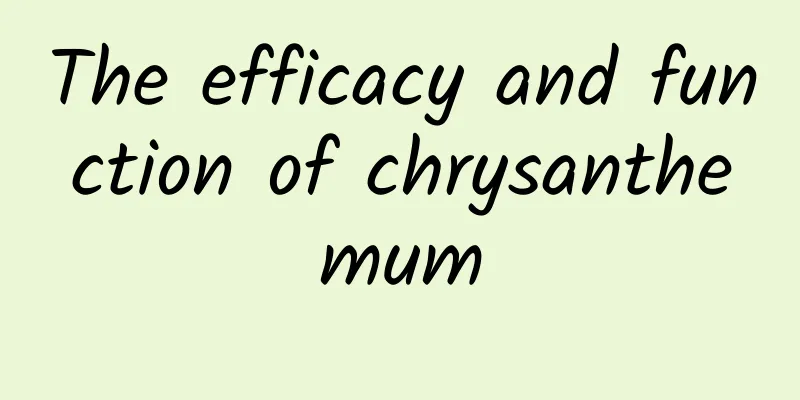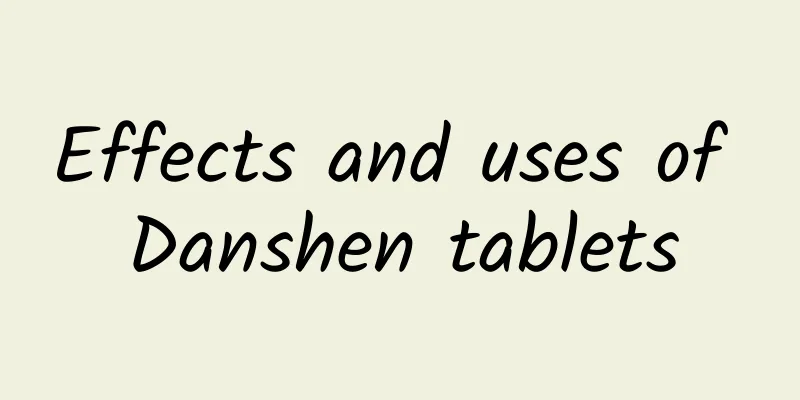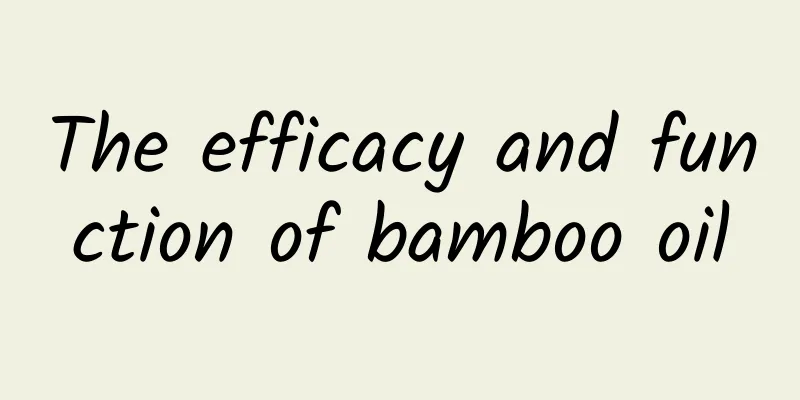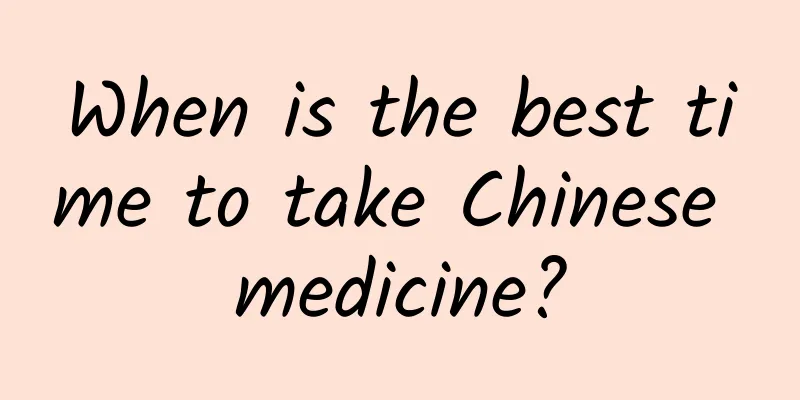Is it okay to eat watermelon after taking Chinese medicine?
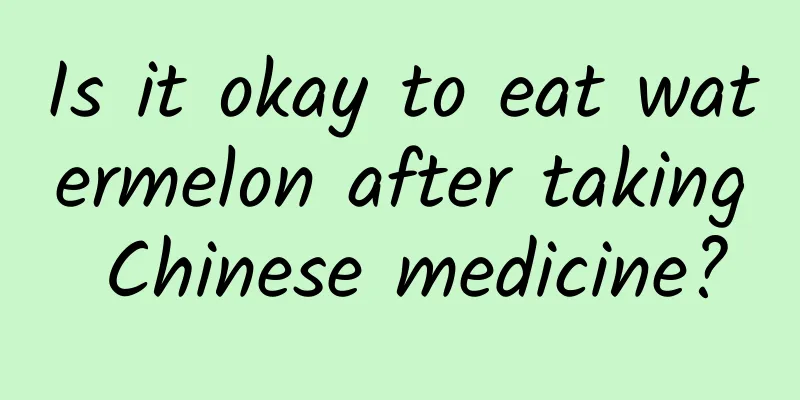
|
Many friends think that you can’t eat watermelon after taking Chinese medicine. In fact, this is not true. As long as the watermelon is not frozen, it can actually be eaten. Friends who take traditional Chinese medicine must not drink alcohol, because alcohol will change the properties of the medicine. At the very least, it will weaken the efficacy of the medicine. At worst, it will change the properties of the medicine and produce other stimuli to the body, affecting the body's health and internal balance. 1. You can eat watermelon while taking Chinese medicine You can eat watermelon while taking Chinese medicine, but you cannot eat icy food because icy food will affect the metabolism of the medicine in the body. You can eat watermelon within one hour after taking the medicine, but it is best not to eat watermelon within thirty minutes to one hour before taking the medicine. While taking Chinese medicine, you should try to avoid eating all kinds of raw and cold foods. Traditional Chinese medicine points out that raw and cold foods are mostly cold in nature and very difficult to digest after consumption. Moreover, raw and cold foods can irritate the stomach and intestines after consumption. In this case, if you take Chinese medicine immediately, it will seriously irritate the gastrointestinal tract, thereby affecting the gastrointestinal absorption of the drug. Therefore, special attention should be paid to avoid eating raw and cold foods when taking Chinese medicine to treat "cold symptoms", such as warming the meridians and unblocking the collaterals, and dispelling cold and dampness. In addition, there are some people with poor spleen and stomach function. Even if they are not taking Chinese medicine to strengthen the spleen and warm the stomach, they cannot eat raw and cold food in their daily lives, otherwise it will make the symptoms more serious. 2. Do not eat watermelon in the early stage of a cold Do not eat watermelon in the early stages of a cold, otherwise it will make the cold worse or prolong the healing time. Whether it is a wind-cold cold or a wind-heat cold, its early stages are all external symptoms and should be treated with a dispersing method that eliminates the pathogenic factors from the surface. Traditional Chinese medicine believes that the interior should not be attacked until the exterior is resolved, otherwise the exterior evil will enter the interior and the condition will worsen. In the early stages of a cold, when the pathogens are on the surface, eating watermelon is equivalent to taking medicine to clear internal heat, which will draw the pathogens into the interior, making the cold worse or prolonging the time to cure. 3. Watermelon is rich in nutrients It promotes bone health. Eating watermelon may improve blood flow (known as vasodilation) in a way that may lower blood pressure. The lycopene contained in watermelon can also improve bone health. Watermelon is rich in potassium, which helps maintain calcium levels in the body and plays a role in strengthening bones. It reduces body fat. Watermelon contains citrulline, which can reduce the amount of fat accumulated in our body. With the help of kidneys, citrulline is converted into arginine through a complex process. It is good for eyes and skin. Watermelon is rich in many vitamins, including beta-carotene, which is converted into vitamin A by the body. In addition to improving eye health, vitamin A also helps maintain healthy skin and teeth. It can improve immunity. Watermelon also contains a lot of vitamin C, and the immune system needs sufficient vitamin C to maintain a good condition. Vitamin C also helps wounds heal and form new growth tissue. |
<<: What are the Chinese medicine remedies for Parkinson's disease?
>>: What is the Chinese medicine formula for cleaning blood vessels throughout the body?
Recommend
What does Angelica sinensis conflict with?
Angelica sinensis is considered to be a tradition...
The whiter the hairtail skin, the more nutritious it is? Can eating fish eyes improve eyesight? Many people are unaware of this...
Expert in this article: Wang Silu, National Senio...
What are the benefits of frost-bitten mulberry leaves?
Mulberry leaves are a very common plant in our da...
Chickens, ducks, bulbuls, owls, babblers, wrens, grebes, bitches... Do you only know chickens and ducks?
There are many rare characters in the bird sectio...
Those cute but ferocious "little" animals
Those cute but ferocious "little" anima...
How much do you know about the history of human use of energy?
1. From Prometheus stealing fire to Suiren drilli...
Coal shortage: is nuclear heating the answer?
Zhejiang Haiyan and Shandong Haiyang have complet...
The efficacy and function of mussel meat
Clam meat is one of the common traditional Chines...
What changes will the body go through after pregnancy? Today, let's say "thank you" to our mothers
The annual Mother's Day is here In this warm ...
How to consume pine pollen
Everyone knows pine pollen. In fact, pine pollen ...
The efficacy and function of milk vertebra
Chinese medicinal materials are very common, and ...
The efficacy and function of golden toad
Traditional Chinese medicine is a Chinese traditi...
The efficacy and function of Longxu Potamogeton
Potamogeton kaki is a kind of traditional Chinese...
Effects and functions of Dendrobium nobile
We all know that the medicinal value of Dendrobiu...
Dandelion's effects on kidneys
Dandelion is a commonly used Chinese medicinal ma...

